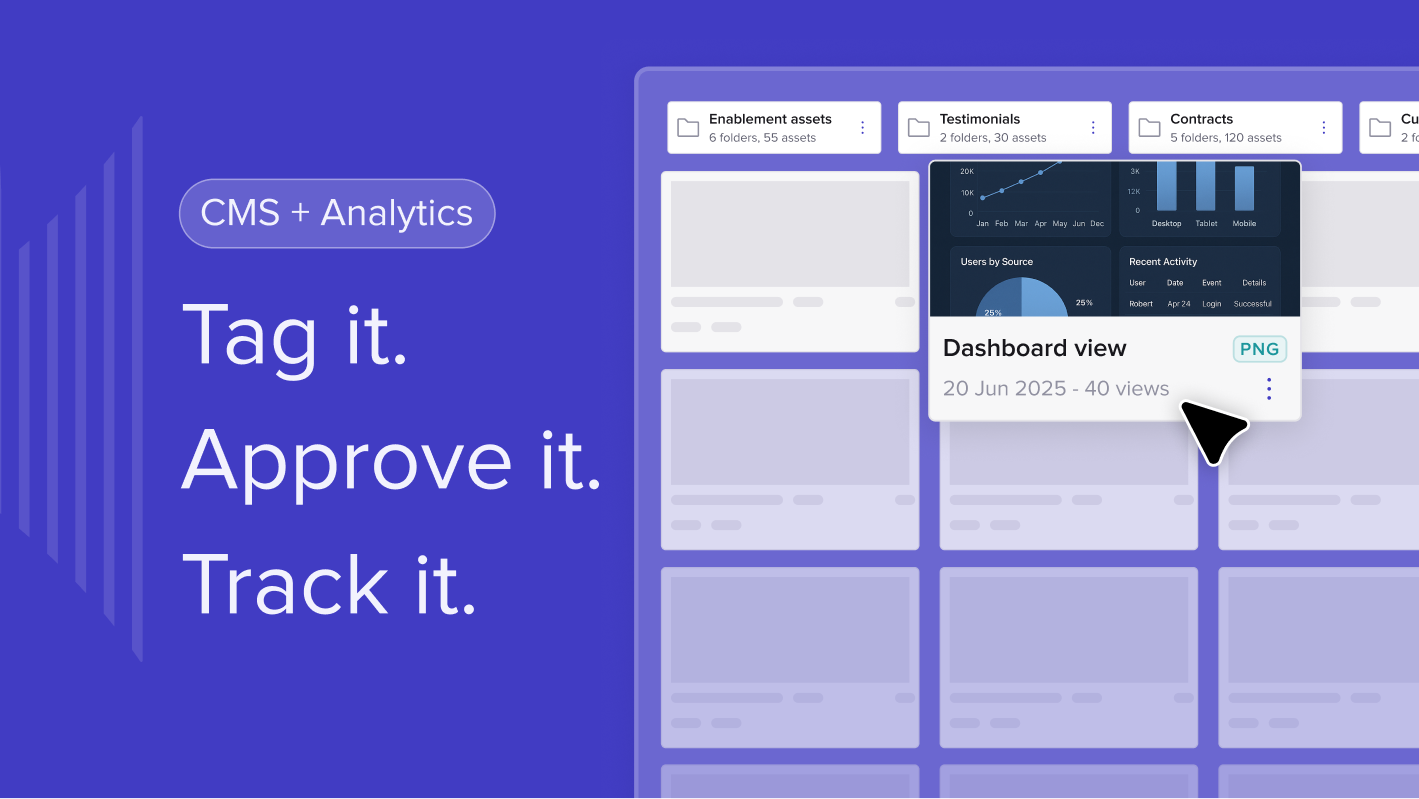📌 Key takeaways
Relationship selling builds trust through rapport. Consultative selling builds trust through value and expertise. Both work, but consultative selling is more scalable and effective for complex B2B deals. The best reps blend both. trumpet helps you master both styles with auto-personalised Digital Sales Rooms and real-time buyer insights.
In this guide, we're delving into two prominent philosophies in the sales world: relationship selling and consultative selling, exploring how they work and which one's better.
We'll also cover:
- Consultative and relationship-selling definitions
- How do these philosophies affect the sales relationship
- Mastering relationship and consultative selling techniques
What is consultative selling?
Consultative selling focuses on creating value and trust. Instead of pushing a product, you act like an advisor: listen, diagnose, and prescribe the right solution.
It’s like a doctor’s visit - you wouldn’t accept a prescription before the doctor asks questions, right?
✅ Fact: 69% of prospects say their needs are missed on the first sales call, proving the value of asking good questions.
Pros and cons of consultative selling
No sales tactic is perfect – while consultative selling sounds like a no-brainer, there are several pros and cons. Let's go through them:
Pros:
- Deepens Customer Understanding: By actively engaging with the client and asking pertinent questions, sales reps develop a deeper understanding of the client's unique needs and challenges.
- Builds Trust: Customers are more likely to trust the salesperson and the recommendations made when they feel understood and valued.
- Promotes Long-term Relationships: As opposed to a one-off sale, consultative selling can lead to a lasting and mutually beneficial business relationship.
- Less Buyer's Remorse: Since the products or services closely match the client's needs, there's a lower chance of post-purchase regrets.
Cons:
- Time-Consuming: This approach takes longer than traditional sales tactics, which can be a disadvantage when dealing with a high volume of leads.
- Requires Skilful Reps: Not all salespeople have the patience or skills needed for consultative selling, and training can be intensive.
- Might Not Suit All Products: Some products, especially simpler or very standardised ones, may not benefit from a consultative approach.
How does the consultative selling process work?
1. Know your stuff
Understand your product, market, and buyer inside-out.
2. Ask the Right Questions
Start broad, go deep, then get specific. Open → closed questions.
3. Diagnose the problem
Pinpoint the pain point and link it to business goals.
4. Prescribe the solution
Present the fix honestly. Sell outcomes, not hype.
What is relationship selling?
Relationship selling is all about trust and likeability. You build rapport first; the sale follows naturally because buyers buy from people they like.
✅ According to HubSpot, 72% of top sellers use buyer-first selling techniques.
What Are the Pros and Cons of Relationship Selling?
✔️ Pros
- Builds loyal, repeat buyers
- Increases customer lifetime value
- Generates referrals through word-of-mouth
- Gets richer, more honest feedback
❌ Cons
- Can create dependency on a few key accounts
- Blurred lines can cause misunderstandings
- Risks crossing ethical lines if not genuine
How do you build strong sales relationships?
Keep it genuine - no fake charm.
- Be Honest: No half-truths.
- Check In Consistently: Social touches, thoughtful follow-ups.
- Exceed Expectations: Deliver surprises that delight.
- Follow Through: Do what you promised.
- Reward Loyalty: Exclusive perks show you care.
Relationship selling vs. consultative selling: Which is better?
Here’s the truth: you don’t have to pick one. Great sellers blend both. If you’re naturally data-driven, lean on consultative selling, you’ll build trust with insight. If you’re naturally people-focused, lean into relationship selling, you’ll win trust through connection.
But consultative selling generally scales better for B2B sales, especially for complex or high-value deals. You’ll build relationships AND deliver measurable value.
Want to put consultative and relationship selling on autopilot? trumpet’s Digital Sales Rooms combine auto-personalised content, live buyer engagement insights, and interactive collaboration — so your pitch feels warm and valuable, not pushy.
FAQs
Is consultative selling the same as solution selling?
They’re similar - both focus on solving problems but consultative selling is broader, covering discovery, diagnosis, and tailored recommendations.
When should I use relationship selling?
Best for long sales cycles, big-ticket deals, or industries where trust is king (e.g. financial services, enterprise software).
Can I mix relationship and consultative selling?
Absolutely. The best sellers build real trust and deliver real value.
Does trumpet support consultative selling?
Yes, every trumpet Pod gives reps real-time buyer signals and co-owned next steps, boosting consultative and relationship selling in one place.
See trumpet in action
Get under the hood of G2's leading Digital Sales Room and explore some of our features without having to speak to any salesperson!

.svg)
.svg)
.svg)
.svg)
.svg)
.svg)
.svg)
.svg)
.svg)
.png)
.svg)
.svg)
.svg)
.svg)

.svg)
.svg)
%201.svg)
.svg)
%201.svg)



.svg)






















![How to Get Started with Buyer Enablement [With Examples]](https://cdn.prod.website-files.com/65cf4fecbed2754c2236665d/65cf4fecbed2754c22366bdb_65a5af83e742f76e34ce06f3_Customer%2520Onboarding%2520_%2520Everything%2520you%2520need%2520(2).png)
.png)



.png)



.png)









.png)


.png)

.png)
.png)







